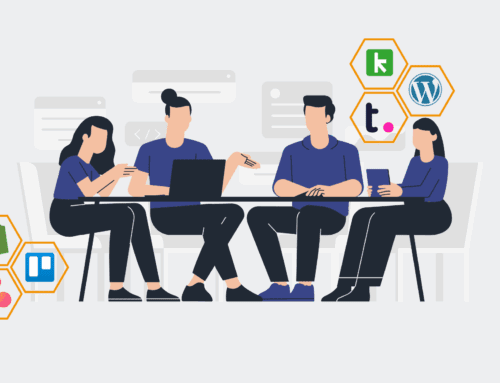A Glossary of Key Terms in AI Ethics & Governance in Talent Acquisition
The rapid integration of Artificial Intelligence (AI) into talent acquisition processes offers unprecedented efficiencies, yet it also introduces a complex landscape of ethical considerations and governance challenges. For HR and recruiting professionals, understanding the core concepts behind responsible AI development and deployment isn’t just about compliance; it’s about building fair, effective, and trustworthy systems that enhance human potential. This glossary provides essential definitions, illuminating how these critical terms apply directly to your efforts in automating and optimizing recruitment.
AI Ethics
AI Ethics refers to the moral principles, values, and guidelines that dictate the responsible design, development, and deployment of Artificial Intelligence systems. In the context of talent acquisition, AI ethics ensures that automated tools for resume screening, candidate assessment, or interview scheduling operate in a manner that is fair, transparent, and respectful of individual rights. It involves proactively identifying and mitigating potential harms, such as bias, discrimination, or invasions of privacy, to foster equitable opportunities and maintain trust throughout the hiring journey. Adhering to AI ethics is paramount for HR leaders seeking to leverage technology without compromising organizational values or legal obligations.
AI Governance
AI Governance encompasses the frameworks, policies, and procedures established to manage the risks and ensure the responsible, compliant, and ethical use of AI technologies within an organization. For talent acquisition, this means setting clear internal guidelines for how AI tools are selected, implemented, monitored, and audited. It defines roles and responsibilities, establishes mechanisms for oversight, and dictates how data used by AI is managed. Effective AI governance in recruiting safeguards against algorithmic bias, ensures data privacy, and promotes accountability, ultimately protecting both candidates and the organization from reputational, legal, and operational risks associated with unregulated AI deployment.
Algorithmic Bias
Algorithmic Bias occurs when an AI system produces systematically unfair or discriminatory outcomes due to flaws in its design, data, or training process. In talent acquisition, this could manifest if an AI-powered resume screener disproportionately rejects qualified candidates from underrepresented groups because its training data predominantly featured candidates from a specific demographic or background. Such bias can perpetuate existing societal inequalities, narrow talent pools, and lead to legal challenges. Identifying and mitigating algorithmic bias is a critical task for HR professionals, requiring rigorous auditing of AI tools and diverse, representative training datasets to ensure equitable hiring practices.
Fairness in AI
Fairness in AI refers to the principle that AI systems should treat all individuals and groups equitably, avoiding disparate impact or discriminatory outcomes. In talent acquisition, achieving fairness means designing and implementing AI tools that do not unfairly disadvantage specific demographic groups, such as based on race, gender, age, or disability, during processes like candidate ranking or skill assessment. It involves more than just avoiding overt bias; it requires proactive measures like diverse training data, bias detection algorithms, and regular audits to ensure that the AI promotes equality of opportunity. Ensuring fairness is a cornerstone of ethical AI adoption in HR, building trust and strengthening diversity initiatives.
Transparency (AI)
Transparency in AI refers to the ability to understand how an AI system functions and makes its decisions. In talent acquisition, this means that rather than simply accepting an AI’s recommendation for a candidate ranking, recruiters should be able to comprehend the key factors or criteria the AI used to arrive at that decision. For instance, knowing if the AI prioritized specific keywords, past experiences, or skill sets over others. This clarity is vital for fostering trust, allowing for human oversight, validating results, and identifying potential biases. Without transparency, AI tools can become “black boxes,” making it difficult to explain or challenge their outputs, which is crucial for fair and defensible hiring practices.
Accountability (AI)
Accountability in AI refers to the clear assignment of responsibility for the actions and outcomes of an AI system, especially when adverse or unintended consequences occur. In a talent acquisition context, this means identifying who is responsible if an AI-driven hiring tool leads to a discriminatory outcome or a data breach. Establishing accountability requires defining roles within the organization, such as data scientists, HR leaders, and legal teams, who are responsible for the AI’s design, deployment, monitoring, and compliance. It is a fundamental pillar of ethical AI governance, ensuring that there are mechanisms for recourse, correction, and continuous improvement, rather than simply blaming the technology itself.
Explainable AI (XAI)
Explainable AI (XAI) refers to the development of methods and techniques that make the decision-making processes of AI systems comprehensible to humans. Unlike traditional “black box” AI models, XAI aims to provide insights into why a particular prediction or recommendation was made. In talent acquisition, XAI can help recruiters understand the specific attributes that led an AI to rank a candidate highly, such as “strong project management experience demonstrated in three roles” or “proficiency in Python and R.” This capability moves beyond simply trusting the AI’s output, enabling HR professionals to justify decisions, build confidence in automated processes, and more effectively identify and challenge potential biases.
Data Privacy (in AI)
Data Privacy in AI concerns the protection of personal information collected, processed, and utilized by AI systems, ensuring it is handled in accordance with legal requirements and ethical standards. For talent acquisition, this is critically important given the sensitive nature of candidate data, which includes resumes, personal details, assessment results, and interview transcripts. AI tools must be designed to anonymize data where possible, ensure secure storage, obtain explicit consent for data use, and adhere to regulations like GDPR or CCPA. Respecting data privacy builds trust with candidates and mitigates significant legal and reputational risks for organizations leveraging AI in their hiring workflows.
GDPR (and AI)
The General Data Protection Regulation (GDPR) profoundly impacts the use of AI in talent acquisition, particularly concerning the processing of personal data for individuals within the EU. GDPR mandates strict rules for consent, data minimization, transparency, and data subject rights (e.g., the right to access, rectification, and erasure). When AI systems process candidate data, organizations must ensure explicit consent is obtained, explain how AI will use the data, and provide mechanisms for individuals to exercise their rights, including challenging automated decisions. Non-compliance can lead to substantial fines and reputational damage, making GDPR adherence a critical consideration for any AI-powered HR technology.
AI Audit
An AI Audit is a systematic and independent examination of an AI system to assess its performance, fairness, compliance with regulations, security, and ethical alignment. In talent acquisition, regular AI audits are crucial for validating that automated screening, assessment, or interview tools are functioning as intended and are free from unintended biases. This involves reviewing the training data, algorithms, and outcomes to ensure the AI doesn’t perpetuate discrimination or violate data privacy laws. An audit can identify vulnerabilities, confirm accountability, and demonstrate a commitment to responsible AI, allowing HR teams to trust and justify their use of AI-driven solutions.
Human-in-the-Loop (HITL)
Human-in-the-Loop (HITL) describes an AI approach where human intelligence and judgment are integrated into an AI process, typically for oversight, feedback, or crucial decision-making points. In talent acquisition, a HITL model might involve an AI system pre-screening thousands of resumes, but then human recruiters make the final selection, review high-priority candidates, or provide feedback to the AI on its recommendations. This collaborative approach leverages AI for efficiency in routine tasks while ensuring that complex, nuanced, or high-stakes decisions remain subject to human empathy, ethical consideration, and strategic insight, mitigating the risks of purely autonomous AI errors or biases.
Ethical AI Frameworks
Ethical AI Frameworks are structured sets of principles, guidelines, and best practices developed to ensure that AI systems are designed, developed, and deployed responsibly and ethically. These frameworks often emphasize principles like fairness, accountability, transparency, privacy, and human oversight. For talent acquisition, adopting an ethical AI framework means intentionally guiding the selection of vendors, the design of internal AI tools, and the establishment of company policies for AI use in recruitment. Such frameworks help HR leaders navigate complex ethical dilemmas, align AI initiatives with organizational values, and demonstrate a proactive commitment to responsible innovation, building trust with candidates and stakeholders.
Consent (Data & AI)
Consent in the context of data and AI refers to the explicit, informed, and unambiguous permission given by individuals for their personal data to be collected, processed, and used by AI systems. For talent acquisition, obtaining proper consent from job applicants is paramount, particularly when using AI tools for resume analysis, video interviews, or psychometric assessments. Candidates must be clearly informed about what data is being collected, how AI will process it, the purpose of such processing, and their rights regarding that data. Ensuring robust consent mechanisms is not just a legal requirement (e.g., under GDPR) but also a crucial ethical practice that builds trust and transparency with potential hires.
Algorithmic Discrimination
Algorithmic Discrimination occurs when an AI system produces outcomes that unfairly or negatively impact certain groups of individuals, often based on protected characteristics like race, gender, or age. In talent acquisition, this could manifest as an AI algorithm inadvertently favoring candidates from specific educational backgrounds, geographic locations, or even based on subtle cues in language that correlate with gender, leading to a biased candidate pool. This form of discrimination can be subtle and unintended, making it challenging to detect without rigorous auditing and monitoring. Addressing algorithmic discrimination is essential to ensure equitable hiring opportunities and avoid legal and ethical repercussions.
Adverse Impact (AI)
Adverse Impact (AI) is a statistical concept used to describe a situation where a selection process or policy, including one driven by AI, disproportionately excludes or disadvantages members of a protected group. In talent acquisition, if an AI-powered screening tool results in a significantly lower selection rate for, say, female applicants compared to male applicants, this could indicate adverse impact. While adverse impact does not necessarily imply intentional discrimination, it triggers a requirement for the organization to demonstrate that the selection process is job-related and consistent with business necessity. Monitoring AI outcomes for adverse impact is a critical component of ensuring fair and legally compliant hiring practices.
If you would like to read more, we recommend this article: Mastering Generative AI for Transformative Talent Acquisition








